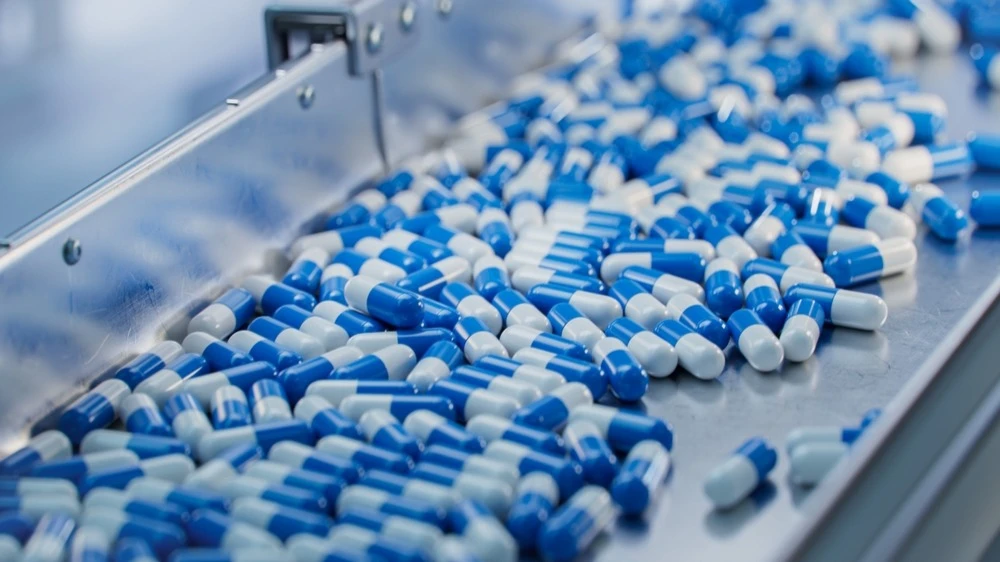Pharma stocks plummet after Trump's demand for price cuts. Should we be worried?
The US President sent letters to 17 pharmaceutical market leaders

The value of shares of major pharmaceutical companies fell sharply - in the range from -1% to -7% - after Donald Trump demanded that they reduce prices for American consumers. In case of disobedience, the US president threatened to use "all available tools". But the White House's ability to implement its policy is quite limited, some analysts say.
Details
US President Donald Trump has sent letters to 17 pharma companies demanding they take steps to lower prescription drug prices in the US, the White House reported.
The strongest in this list at the end of trading on July 31 dropped securities of Sanofi - by 7.33%. In second place were the U.S.-traded receipts of Danish Novo Nordisk, which collapsed by 5.92% and in the course of trading reached the minimum since January 2022. Shares of Bristol-Myers Squibb (-5.8%) were also down more than 5%, while GSK (-4.67%), AstraZeneca (-4.57%) and Merck (-4.44%) were down more than 4%. At companies Eli Lilly, Novartis, Pfizer, Gilead and Amgen securities fell by more than 2%. Regeneron Pharmaceuticals (-1.64%), Johnson & Johnson (-1.51%) and AbbVie (-0.15%) posted the most modest declines. In addition to these companies, nonpublic Boehringer Ingelheim, Genentech and EMD Serono (a Merck business) also received Trump's letters.
The decline in Merck as well as UnitedHealth was largely responsible for the fall of the blue-chip index Dow Jones Industrial Average, which lost 0.74% at the end of the trading day, noted CNBC. The main U.S. index S&P 500 fell 0.37%: for the first time since April, it lost the 1% gain it showed during the day, wrote Bloomberg. Through July, the S&P 500 was up 2.2%, while the Dow Jones was up just 0.1%. Both indexes rose for the third straight month, CNBC reported.
What Trump's emails say
The U.S. president has prescribed steps for 17 pharmaceutical companies to take to lower prescription drug prices in the United States: bringing them in line with the lowest prices for the same drugs in other developed countries, the White House announced.
According to Trump, companies are obliged to offer the best prices among developed markets to every patient in the US under the Medicaid insurance program. Also, the US president asked manufacturers to make sure that the cost of new drugs in the US at least does not exceed the cost abroad. The third step is to eliminate middlemen so that manufacturers sell drugs directly to patients at a price no higher than the best among developed markets.
Finally, Trump's letter suggests that trade policy can be used to support manufacturers in raising prices internationally - provided that their increased profits abroad are directly reinvested in lowering prices for U.S. patients and taxpayers.
Trump has given companies 60 days to voluntarily bring their businesses into compliance. If they refuse, the federal government will "employ every tool in its arsenal to protect American families from ongoing drug price abuse practices," the White House said. What the authorities' actions might be, it did not specify.
What does that mean
Following Trump's demands, companies have individually indicated a willingness to work with the U.S. administration on drug affordability, but the industry's largest business association has taken a tougher stance, wrote Bloomberg. "Importing foreign price controls will undermine American leadership and hurt patients and workers," a PhRMA spokesperson said in the agency's statement.
Some analysts were unimpressed by Trump's threats.
"While today's announcement contains some 'headline shock,' we continue to believe it is unlikely that the Trump administration will be able to successfully implement these policies," BMO Capital Markets analyst Evan Seigerman wrote in a note cited by Bloomberg. According to Seigerman, Trump in some cases "lacks the legal authority to implement what he has outlined."
UBS analyst Chung Huynh considered Trump's letters a repetition of his past demands and did not attach much importance to them, calling them "another blind shot", reported Reuters. It is unlikely that pharma companies will comply with the US president's demands to cut prices, the agency noted, citing the opinions of analysts, lobbyists and experts on pricing in the drug market.
The pharmaceutical industry has long resisted the idea of global drug price pegging: it said it threatens U.S. dominance in biomedical research and reduces incentives to develop new treatments, noted Bloomberg. Instead, the executives suggested the White House should look at intermediaries in the supply chain, the agency added.
This article was AI-translated and verified by a human editor
